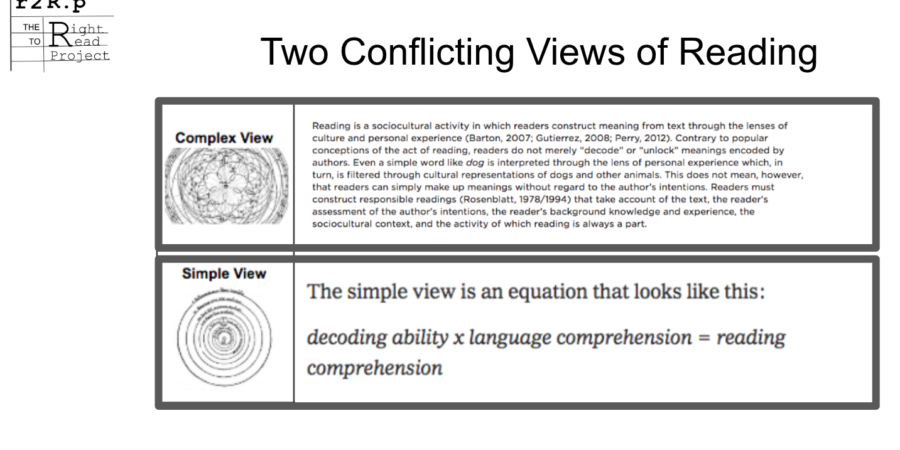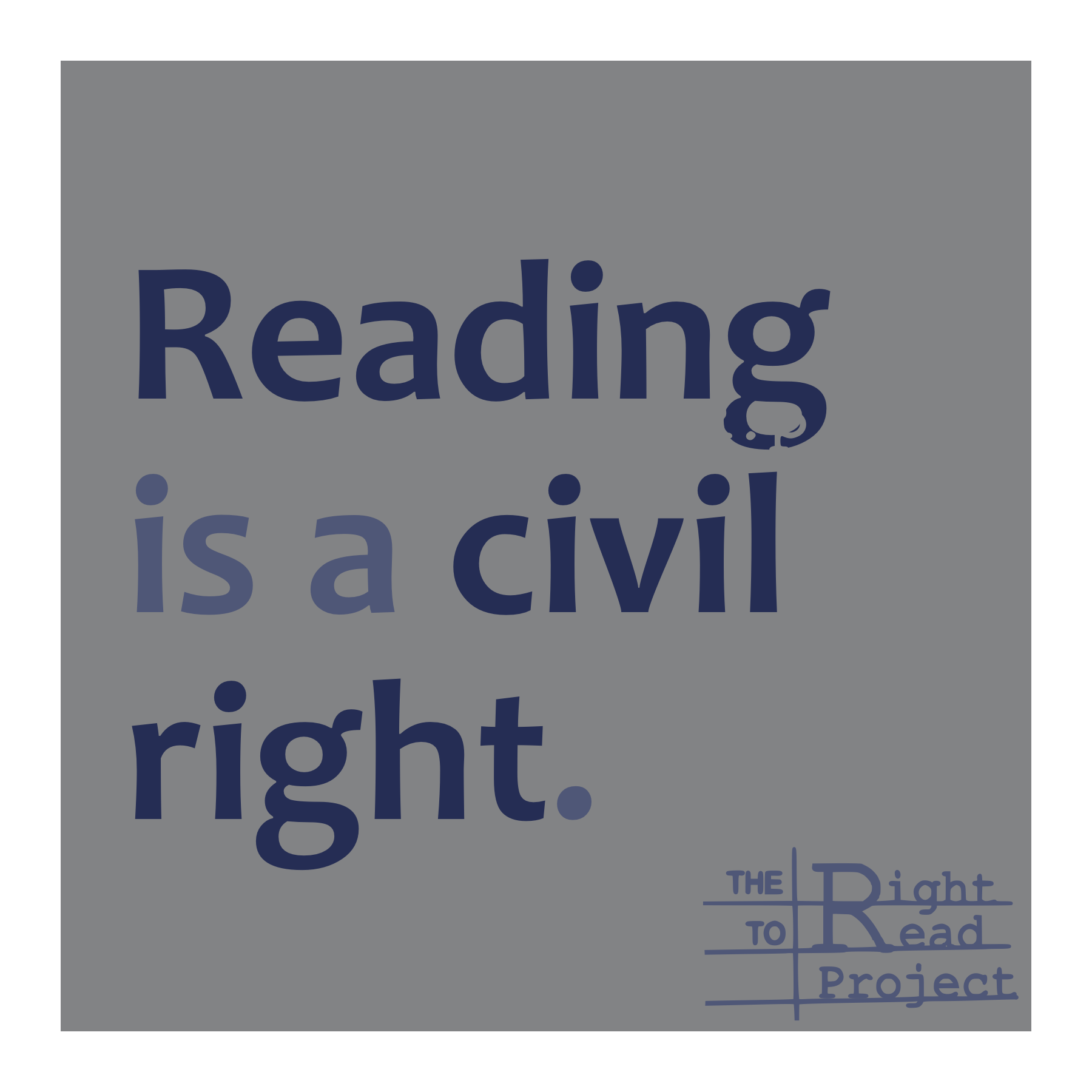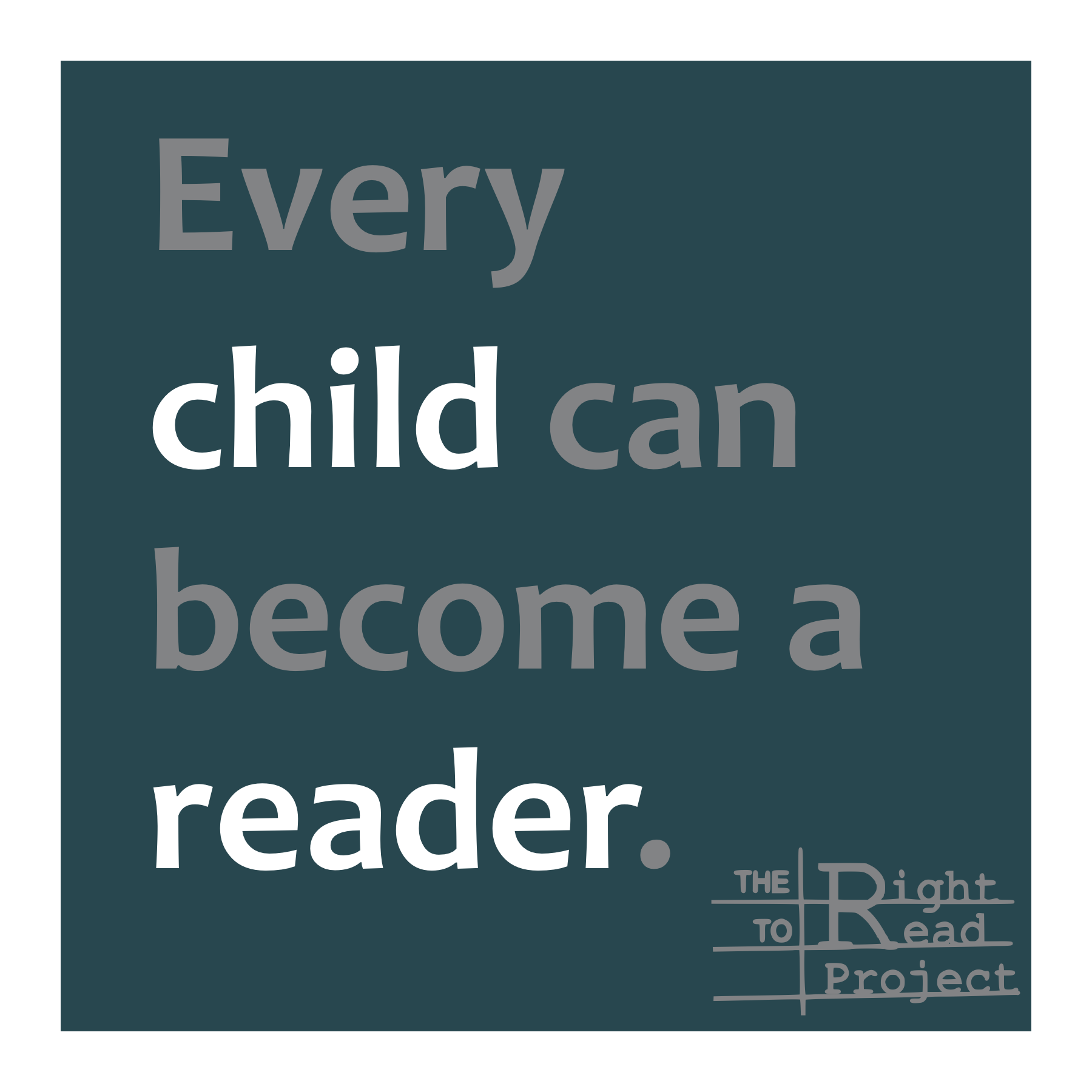A GUIDE TO READING ADVOCACY, PART 2 (Click here to read Part 3.) Is my child getting good reading instruction at school? Families need an answer to this question, because children who don’t learn to read well in first and second grade are unlikely to catch up later. And there can be lifelong repercussions. As one parent said at a school board meeting: “Again and again, we are hearing that

Simple But Not Easy
As the foundations of Balanced Literacy begin to crumble, the proponents of Balanced Literacy are now presenting a new theory of reading, which they call the Complex View. In this reincarnation of the reading wars, the Complex View seeks to counter a well-researched alternative, The Simple View. I was struck last month by the contrast between two articles that were published on the same day: Two Publications from December 5th
Balanced Literacy’s Crumbling Foundation– What We Can Do About It
Planning with the creative and hard-working teachers on my fourth-grade team was rewarding (and occasionally hilarious), but our enthusiasm sometimes produced overly-complicated plans. If a plan was becoming unwieldy, one of us would interrupt the process and say to the team: “If it’s this complicated, it’s probably not right.” We’d then pause, rearticulate our goals, and start over to create a more coherent instructional plan. Thought leaders in the Balanced

Dear Lucy,
Dear Lucy, Thank you for writing No One Gets to Own the Term “The Science of Reading.” I am so relieved that discussion of reading science has made its way into the balanced literacy community and that you’ve added your own voice to the conversation. You’re making it safe for experienced educators to refine our practice as a result of new learning. For many years, I was a devout reading
The Drudgery (and Beauty) of Decodable Texts
I was determined to undo the bad reading habits my students had developed during guided reading. So, I exchanged a leveled reading program for one with decodables and used a diagnostic phonics assessment to regroup my students. For some students, cracking the code was easy Students with strong phonemic awareness linked the sounds they heard in spoken words to the letter patterns I taught. When they came to an unfamiliar
It’s Not Enough to Know Better
Just as the school year began, Natalie Wexler’s Knowledge Gap and Emily Hanford’s At a Loss for Words shook the ground under Balanced Literacy. Optimists might assume that classroom instruction will be transformed as a result of these powerful publications, but if a teacher in my district heard the research and wanted to change her practice, she’d face a series of barriers. Barrier: Formal Evaluation The school year began with
Teachers Won’t Embrace Research Until It Embraces Them
I understand why advocates, researchers, and policymakers who feel the urgency of our literacy crisis are frustrated when teachers don’t embrace reading science. But my entry into the world of reading research was difficult, and while I take pride in my determination to learn, I understand why other teachers might be deterred. If we want teachers to apply research, it may be helpful to think about why they aren’t. I’ll
Part 2: Complicating the Simple View of Reading
The Simple View of Reading beautifully demonstrates the equal importance of decoding and language comprehension. But because the formula is so… well… simple, it leaves out quite a bit. To look more deeply at skilled reading, we needed other models. We wondered, about the Simple View: What are the components of decoding? What is language comprehension? For those questions, we found answers in Scarborough’s Rope, developed by Dr. Hollis Scarborough
Part 1: Simple View of Reading
Decoding x Language Comprehension = Reading Comprehension The Simple View of Reading is helping us rebalance instruction in my Balanced Literacy school district. For a while, “balance” meant whole-language reading instruction with 20 minutes of word study, even in kindergarten and first grade, so students were not developing the foundational skills necessary for reading. Many students appeared to be on track in the primary grades when they recited simple leveled-texts,
Reading Science: Not Just Phonics
From What Is the Science of Reading? Shanahan on Literacy: Teacher question: I keep hearing that teachers don’t know the science of reading. But all the teachers that I talk to say that they teach phonics. What’s really going on? In his blog, Shanahan does a wonderful job of explaining that the science of reading covers more than phonics, and his post has already come in handy for us because








